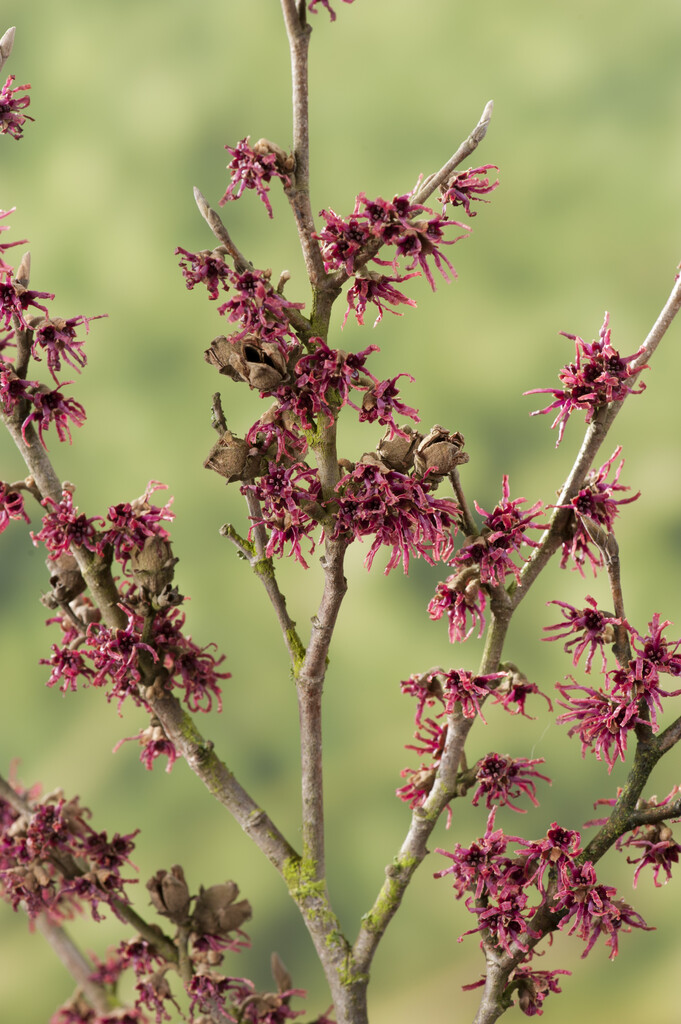Hamamelis 'Amethyst'
witch hazel 'Amethyst'
Large deciduous shrub, broad oval leaves turning yellow-red in autumn. Flowers appear on leafless branches in late winter, red, purple and pink.
Synonyms
Hamamelis vernalis 'Brotzman Puple'Hamamelis vernalis 'Purple Seedling'
see moreHamamelis vernalis 'Amethyst'
Size
Ultimate height
2.5–4 metresTime to ultimate height
10–20 yearsUltimate spread
2.5–4 metresGrowing conditions
Moisture
Moist but well–drained, Well–drainedpH
Acid, NeutralColour & scent
| Stem | Flower | Foliage | Fruit | |
| Spring | Red Purple Pink | Green | ||
|---|---|---|---|---|
| Summer | Green | |||
| Autumn | Green Yellow Red Orange | |||
| Winter | Red Purple Pink |
Position
- Full sun
- Partial shade
Aspect
South–facing or East–facing or West–facing or North–facing
Exposure
Sheltered Hardiness
H5Botanical details
- Family
- Hamamelidaceae
- Native to GB / Ireland
- No
- Foliage
- Deciduous
- Habit
- Bushy
- Genus
Hamamelis are deciduous shrubs with broadly ovate or rounded leaves, sometimes colouring well in autumn, and fragrant yellow to red flowers with 4 narrow petals, borne on the leafless branches in late winter and early spring, or in autumn
- Name status
Accepted
How to grow
Cultivation
Best in an open, sunny spot, avoiding exposed or windy positions, with well-drained, humus-rich, acid or neutral soil. See hamamelis cultivation
Propagation
Propagate by simple layering of suitable shoots in spring, by grafting in late winter or by chip budding in late summer
Suggested planting locations and garden types
- Cottage and informal garden
- Low Maintenance
- Flower borders and beds
Pruning
Pests
Generally pest-free
Diseases
May be susceptible to coral spot, honey fungus, phytophthora root rot and powdery mildews
Get involved
The RHS is the UK’s gardening charity, helping people and plants to grow - nurturing a healthier, happier world, one person and one plant at a time.
